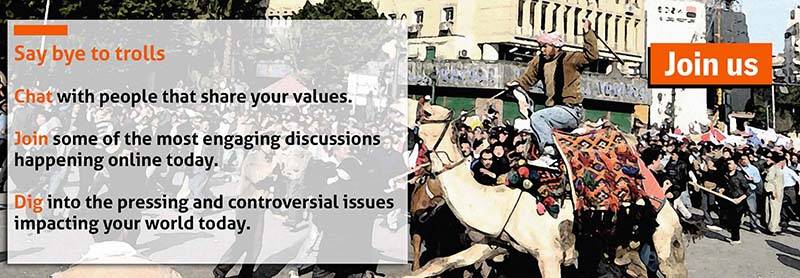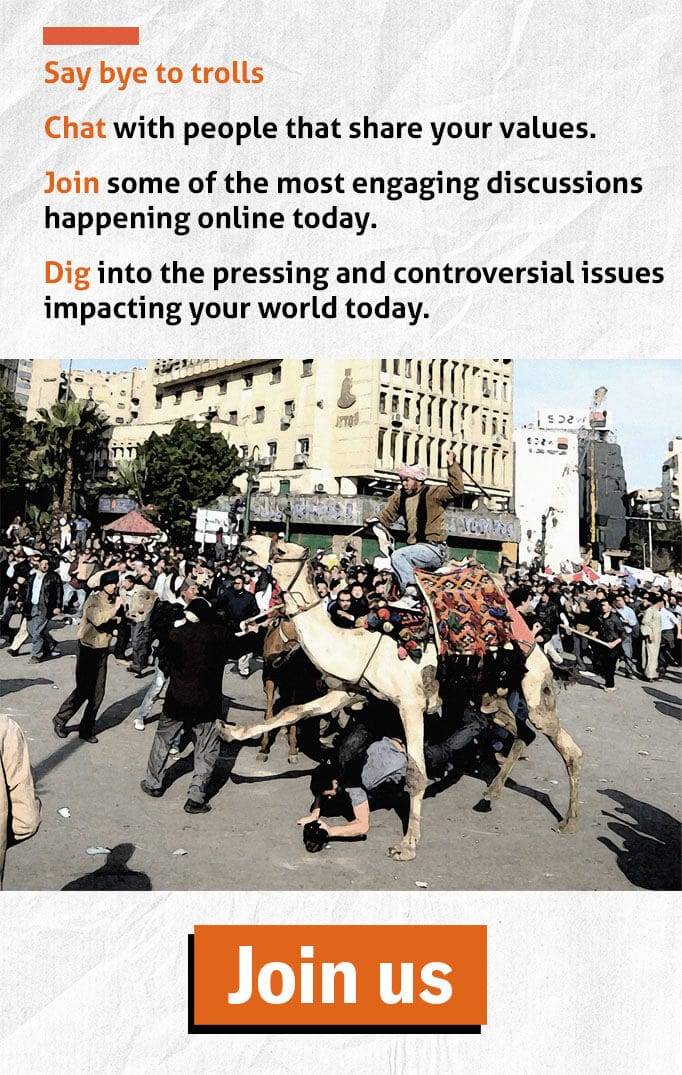"I wish Suzy sensed a bit of this love which is expressed at her burial by some on social media outlets during her lifetime, but perhaps heaven is more worthy of her than this community."
In these words, the transgender committee of the “Helem Association” for LGBTIQ rights in Lebanon, mourned Suzy, the dancer and gender rights activist, who passed away at the age of 66, after a life full of injustice and persecution.
Helm started as a human rights movement that focuses on individual freedoms in 1998, before transforming into an association concerned with the protection of the LGBTIQ community in Lebanon in 2004 through awareness campaigns and effective activities on social media.
Since Suzy's death on January 27, the sympathetic comments about what this lady has endured have not stopped, prompting some to call for utilizing this opportunity to change the societal response to the suffering of Suzy's comrades who are still alive or not yet born.
Transgender persons live in a fragile situation in Lebanon as in the rest of the Arab world. It is not possible for them to find work, or to live under “normal” life conditions. This can be attributed to their identification with gender identities that are not in accordance with the identity of their biological sex under which they were born. They rather identify themselves as men or women according to their social and gender identity. As a result, they are exposed and subject to psychological, physical, and sexual assaults.
This was confirmed by a report by Human Rights Watch in cooperation with two major organizations advocating the rights of the LGBTIQ community in Lebanon, namely "Helm" and "Mosaic". The report was published in March 2019 under the title “’Don’t Punish Me for Who I Am: Systemic Discrimination against Transgender Women in Lebanon.”
Suzy was rejected by society. Her death was a collective assassination by family, society and media; All took advantage of her weakness to promote their interests instead. Suzy was assassinated by a country that pursues #LGBTIQ under the law of nature
According to the same report, transgender women in Lebanon cannot even walk safely on the streets, as there are no laws that protect them from “discrimination in public places.” They do not enjoy the right to express their emotional and sexual relations in public, and they are often subjected to detention on charges of engaging in an "intercourse that contradicts the laws of nature".
They also do not have access to homes or opportunities for education, and other basic services, because they are socially ostracized, isolated from the family, and are institutionally rejected.
Bitter Suffering
All this and more was suffered by Suzy, who was born as "Qasim" to a Greek mother and a Lebanese father. According to what she narrated about herself in television interviews, she was living with her mother in Greece, where she worked as a model who roamed the whole world, until the death of the mother and her return to Lebanon.
“I wish I never returned to Lebanon” she said, as she recounted the difficult circumstances that she experienced in the midst of her family's "ostracism and rejection, the society's rejection, and the lack of financial support due to her unemployment, which prompted her to resort to prostitution and consequently to her detention in police stations where she would spend a longer time than that she spent in her house.
Even “when the world decided to smile at her”, as she put in her own words, and gave her an opportunity to refrain from the "dirty work (prostitution)", as she described it, she found herself an object to be used by those who filmed videos of her while she was singing, dancing or making jokes – or even when she recounted details about her suffering in exchange for some money. Suzy added explaining how she was used for entertaining others with her life story.
Suzy became popular and some media hosts invited her on their programs, it was mostly for the purpose of exploitation. No one helped her or thought about extracting her from the "loneliness and poverty" she suffered from. #LGBTIQ in #Lebanon
According to commentators, when Suzy became popular and some media hosts started to invite her on their programs, it was mostly for the purpose of exploitation. No one helped her or thought about extracting her from her "loneliness and poverty" she had always suffered from; instead, everyone was only interested in higher views ratings.
Indeed, even associations active in defense of transgender rights were not able to support her.
Accordingly, in the elegy to Suzy paid by the transgender committee of Helm, the association apologized for its " failure and the failure of all LGBTQI people, associations, groups and civil society institutions to support and/or help her lead a safe and dignified life. Despite some appreciated attempts and initiatives, we were not able to address Suzy's situation and secure her civil and human rights."
Many Lebanese social media users have since expressed their grief over her passing, as well as regret for “circulating videos that mocked and demeaned Suzy.” They wished her a better life and rest in the afterlife.
Some commentators described her as a "fighter" and "hero who triumphed over the torments of the earth" for her steadfastness in the face of what she went through and her courage to adhere to her gender identity and pride she took in it – while others preferred suicide to their battle confronting society.
Will the suffering of transgender people come to an end?
In its obituary dedicated to Suzy, the transgender committee of "Helm" proceeded to address decision-makers in Lebanon, declaring: "the state of Lebanon, which violated and marginalized Suzy and many of the transgender sisters and brothers who we lost, and refused to provide any kind of support and services to them… we will not forget what Suzy lived through along with hundreds of other transgender persons, and we will continue our work and struggle to affirm our full rights; our right to live equally like the rest of society, our right to safety ... and to live in dignity. ”
Meanwhile, Lebanese artist Mike Massy called for putting an end to judging people who are gender non-conforming, such as what happened in Suzy’s case. He tweeted: “Who knows, one day it may be possible that we no longer judge each other again... Farewell Suzy.”
Others have commented that Lebanese society is responsible for the "beatings, assaults and mockery" that Suzy was subjected to, demanding a change to the status quo.
The human rights activist and executive director of the Arab Foundation for Freedoms and Equality (AFE), George Azzi, told Raseef22: "I think that during her lifetime, Suzy succeeded in creating a relationship between society and the trans community, and the mockery began to turn into sympathy towards her during her lifetime, and it was even evident that TV programs improved their treatment of her" later.
He added: "Her death is an opportunity to educate the community about the needs of the trans community, noting that Suzy had access to housing, food, and people caring for her ... but the care that she had access to in the last few years, after her appearance on television screens, does not erase the traces of the torment of the past years of her family's rejection. This family which even refused to receive her after her death."
On the other hand, the coordinator of the transgender committee at "Helm", Naya Rajab, expressed a different viewpoint to Raseef22: “Suzy was rejected by society [and was] stripped of all her rights as a human being. Her death was not a natural one, but a collective assassination by her family, society and the media institutions that took advantage of her weakness every time to promote it in its own way. Her death was an assassination committed by a country that pursues us (transsexuals) under [the pretext of] the laws of nature.”
She added: "Suzy is a collage of strength, struggle, love and peace, we still remember her words in one of her final interviews when she said: 'I do not want anyone to help me, as much as I want to work for someone who owns a lot of animals, because I love animals since my childhood.'"
Rajab concluded: "Even when she died, she was not spared from some individuals and institutions who took advantage of the news to appear and talk about their 'heroic' stances that she actually missed during her life."
In the end, the question remains: why does the sadness over what Suzy experienced not become a lesson that guides the Lebanese society and seeks to confront the suffering of the rest of transgender people in the country and even those with non-conforming sexual orientations, at least so that we do not see a second and a third case such as Suzy’s?
Raseef22 is a not for profit entity. Our focus is on quality journalism. Every contribution to the NasRaseef membership goes directly towards journalism production. We stand independent, not accepting corporate sponsorships, sponsored content or political funding.
Support our mission to keep Raseef22 available to all readers by clicking here!






Join the Conversation
Anonymous user -
1 day agoUn message privé pour l'écrivain svp débloquer moi sur Facebook
Anonymous user -
1 day agoالبرتغال تغلق باب الهجرة قريبا جدااا
Jong Lona -
2 days agoأغلبهم ياخذون سوريا لان العراقيات عندهم عشيرة حتى لو ضربها أو عنقها تقدر تروح على أهلها واهلها...
ghdr brhm -
2 days ago❤️❤️
جيسيكا ملو فالنتاين -
5 days agoجميل جدا أن تقدر كل المشاعر لأنها جميعا مهمة. شكرا على هذا المقال المشبع بالعواطف. احببت جدا خط...
Tayma Shrit -
6 days agoمدينتي التي فارقتها منذ أكثر من 10 سنين، مختلفة وغريبة جداً عمّا كانت سابقاً، للأسف.